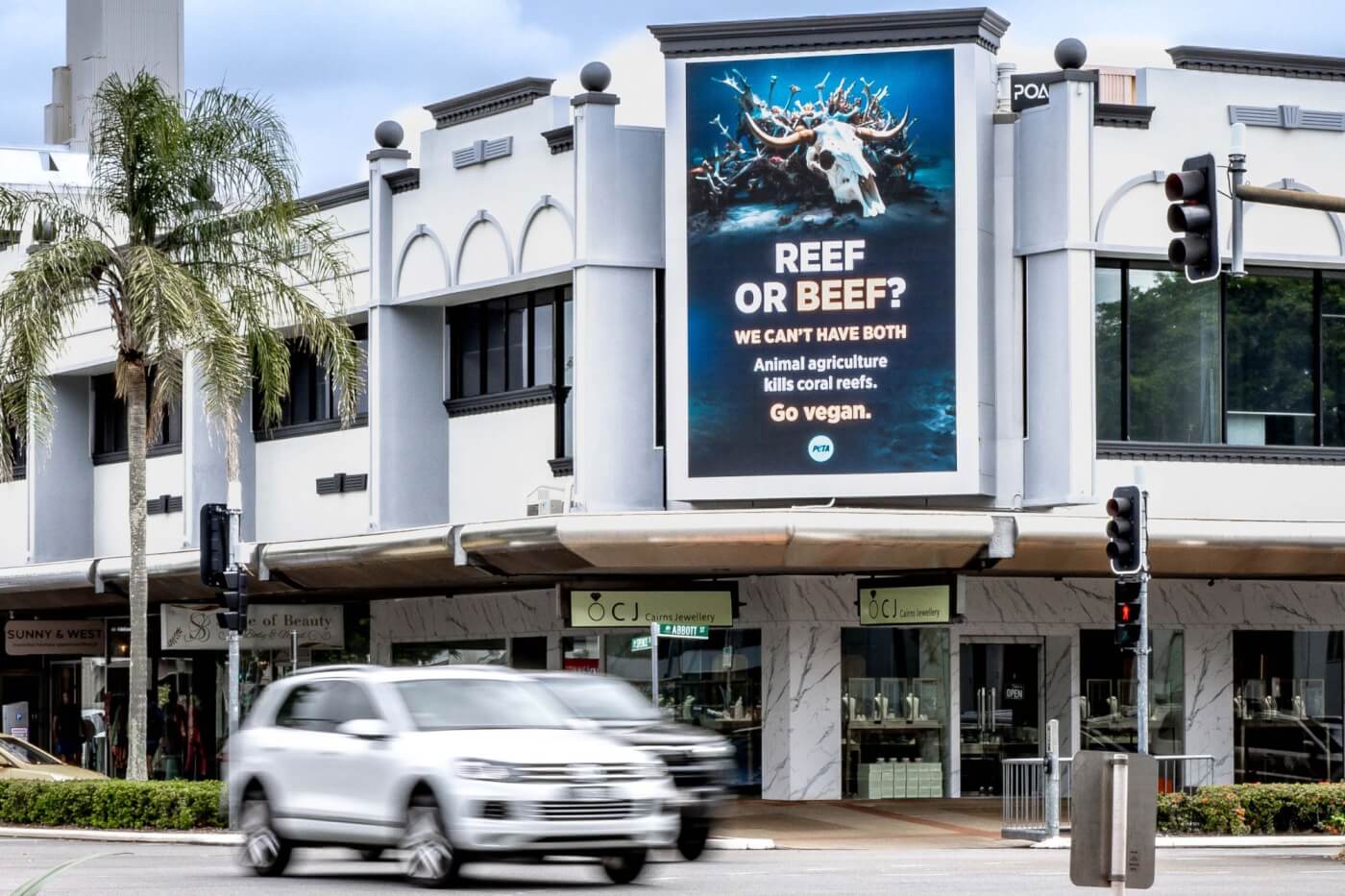‘Reef or Beef?’ PETA Billboard Warns We Can’t Have Both
World Heritage Site Ad Blames Meat Industry for Reef Destruction
Cairns – A new People for the Ethical Treatment of Animals (PETA) billboard has been erected on a corner of Abbott and Spence streets, en route to the Esplanade, in Cairns – a gateway to the Great Barrier Reef – taking aim at Australia’s environmentally devastating appetite for animal flesh. The ad features a haunting image of cow skulls intermingling with the bleached bones of a dying reef, and the headline reads, “Reef or Beef? We Can’t Have Both. Animal Agriculture Kills Coral Reefs. Go Vegan.”
The photo is also available here.
The Great Barrier Reef is experiencing its fifth global warming–driven mass bleaching in just eight years, and at least 10% of corals are affected on 73% of reefs. The Queensland government says that the biggest threat to the reef is the climate catastrophe – of which animal agriculture is a leading driver. Queensland’s production of 1.1 million tonnes of beef annually harms the planet via the production of atmosphere-heating greenhouse gases like methane and nitrogen and the clearing of land for grazing. The Wilderness Society found that beef production is responsible for 73% of all land clearing in Queensland and more than 94% of land clearing in Great Barrier Reef catchment areas.
“Australians love the great outdoors, and our economy relies heavily on tourism, so it’s important to highlight how bad habits – such as an appetite for the flesh of dead cows – damage the magnificent natural wonders in our own backyard,” says PETA Senior Communications Advisor Emily Rice. “Simply put, every time you eat meat, you’re contributing to the destruction of the Great Barrier Reef.”
Even a half-degree increase in water temperature can stress corals, which can lead to their starvation and death. Coral reefs are also negatively impacted by excessive carbon dioxide, which can slow coral growth rates by as much as 50%. But it’s not just the production of meat, involving the cruel breeding, confinement, and horrific slaughter of animals, that harms the reef – what comes after you eat a steak also makes a splash. The faeces of meat-eaters are loaded with nitrogen, an element which, in excess, causes algal blooms that suck up available oxygen, release toxins, and ultimately eliminate other organisms in the rivers, seas, and oceans. It’s estimated that human wastewater alone adds 6.2 million tonnes of nitrogen to coastal waters annually.
Scientists have long warned that meat consumption is largely responsible for the escalating climate catastrophe, and reefs are only one victim. But we can all do our part to change things: research shows that vegan diets result in 75% less climate-heating emissions, water pollution, and land use than diets containing meat.
PETA – whose motto reads, in part, that “animals are not ours to eat” – opposes speciesism, a human-supremacist worldview. For more information, please visit PETA.org.au and follow the group on Facebook and Instagram.
Contact:
Sascha Camilli [email protected]
#

